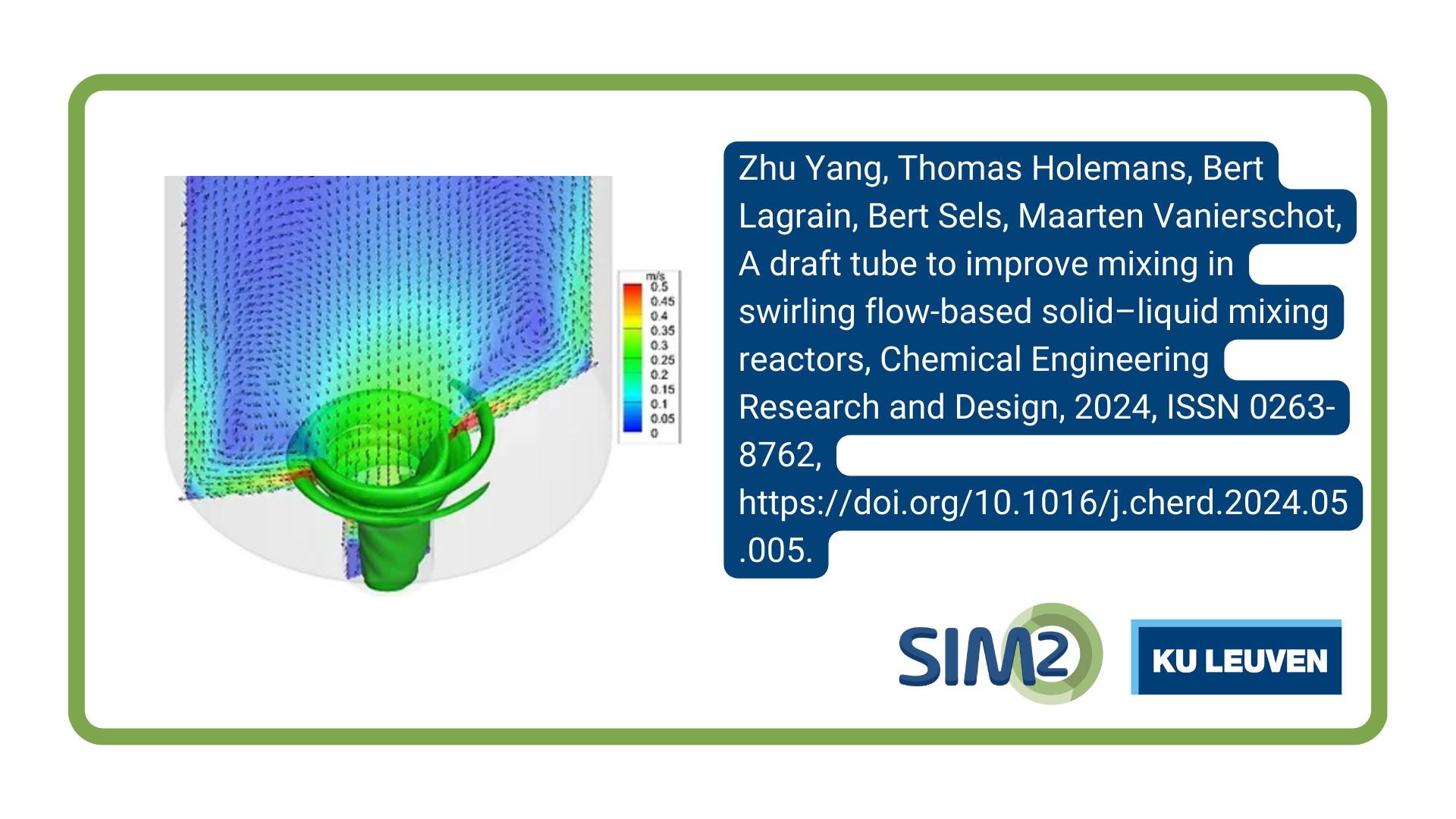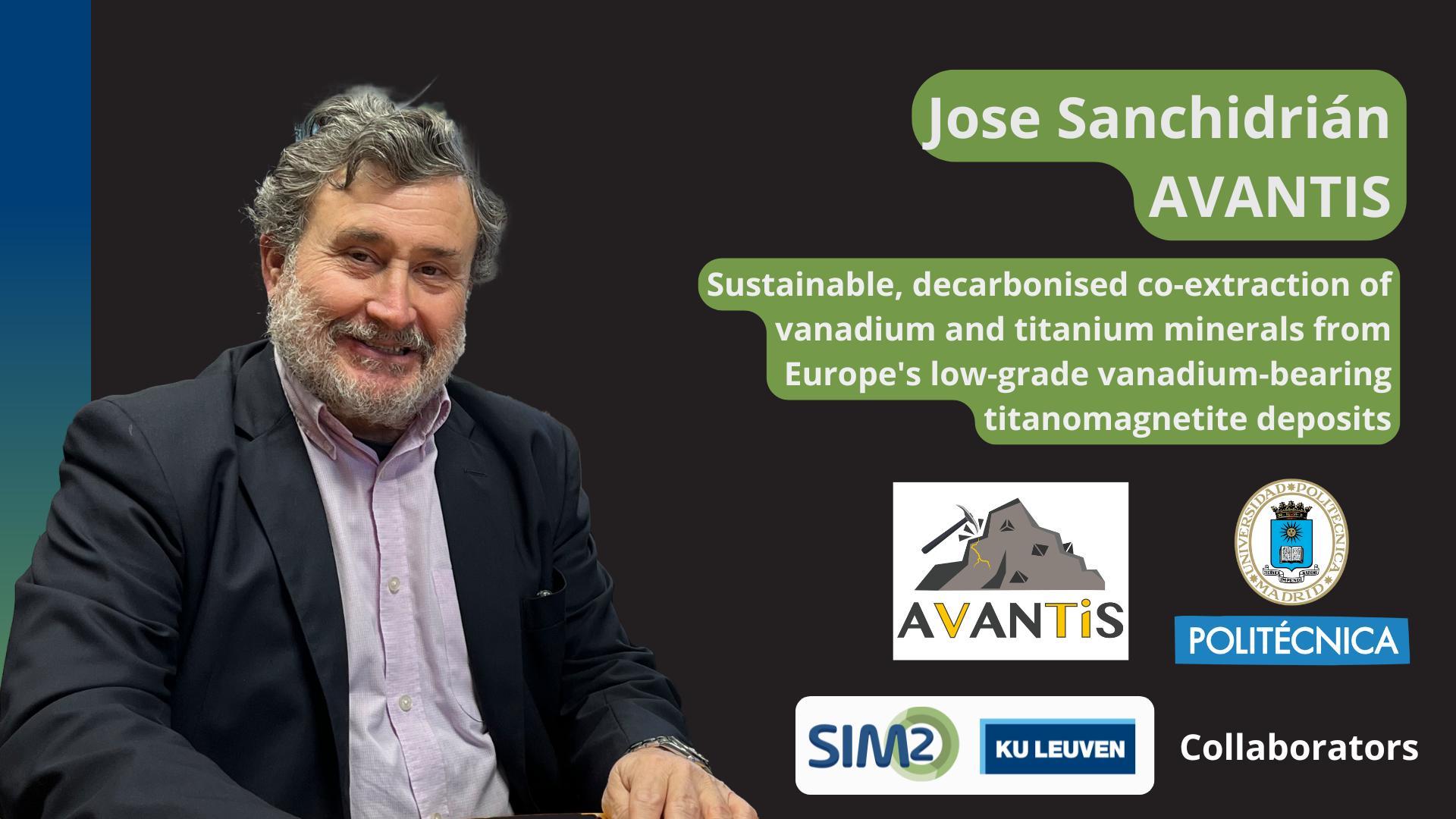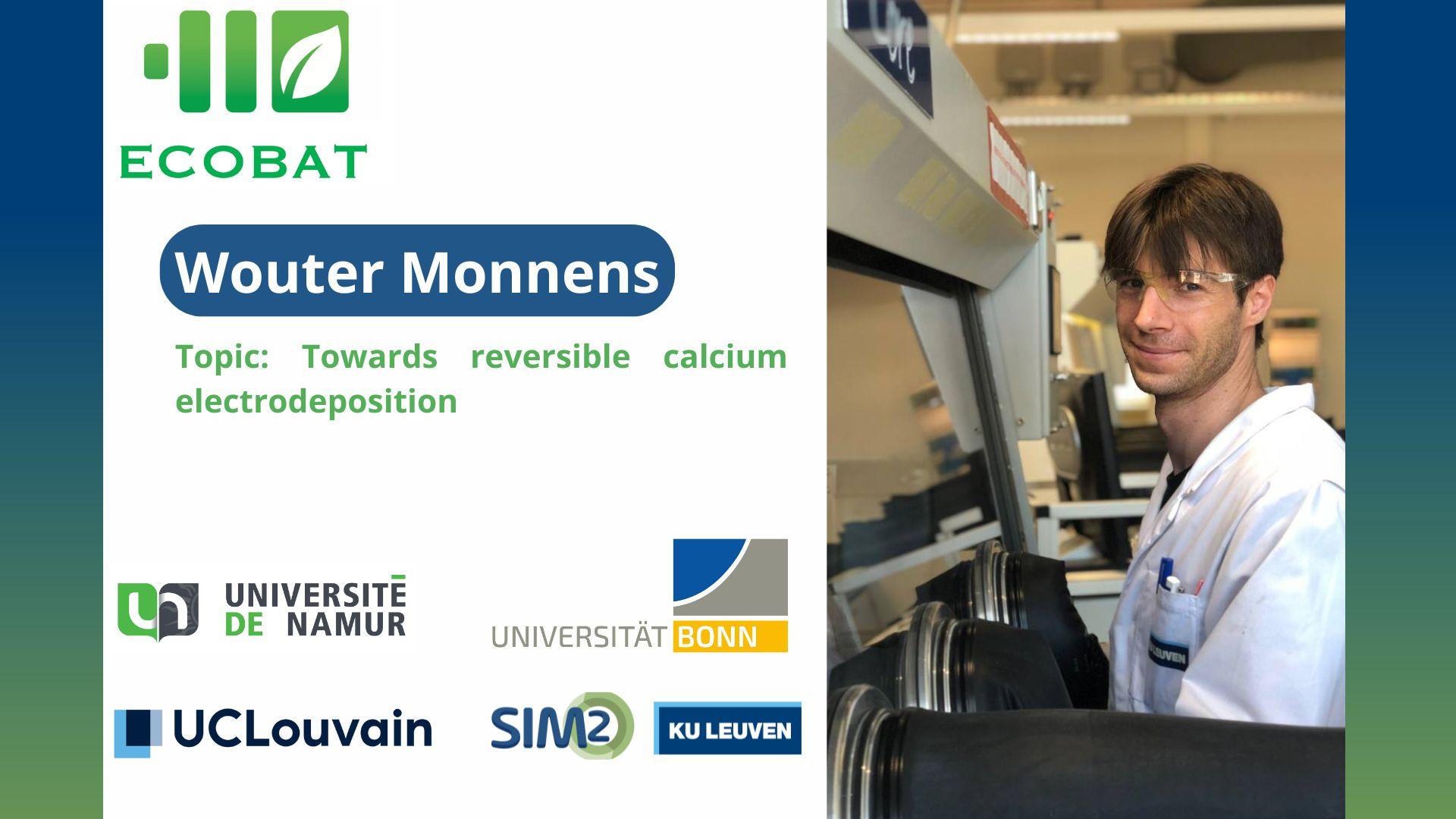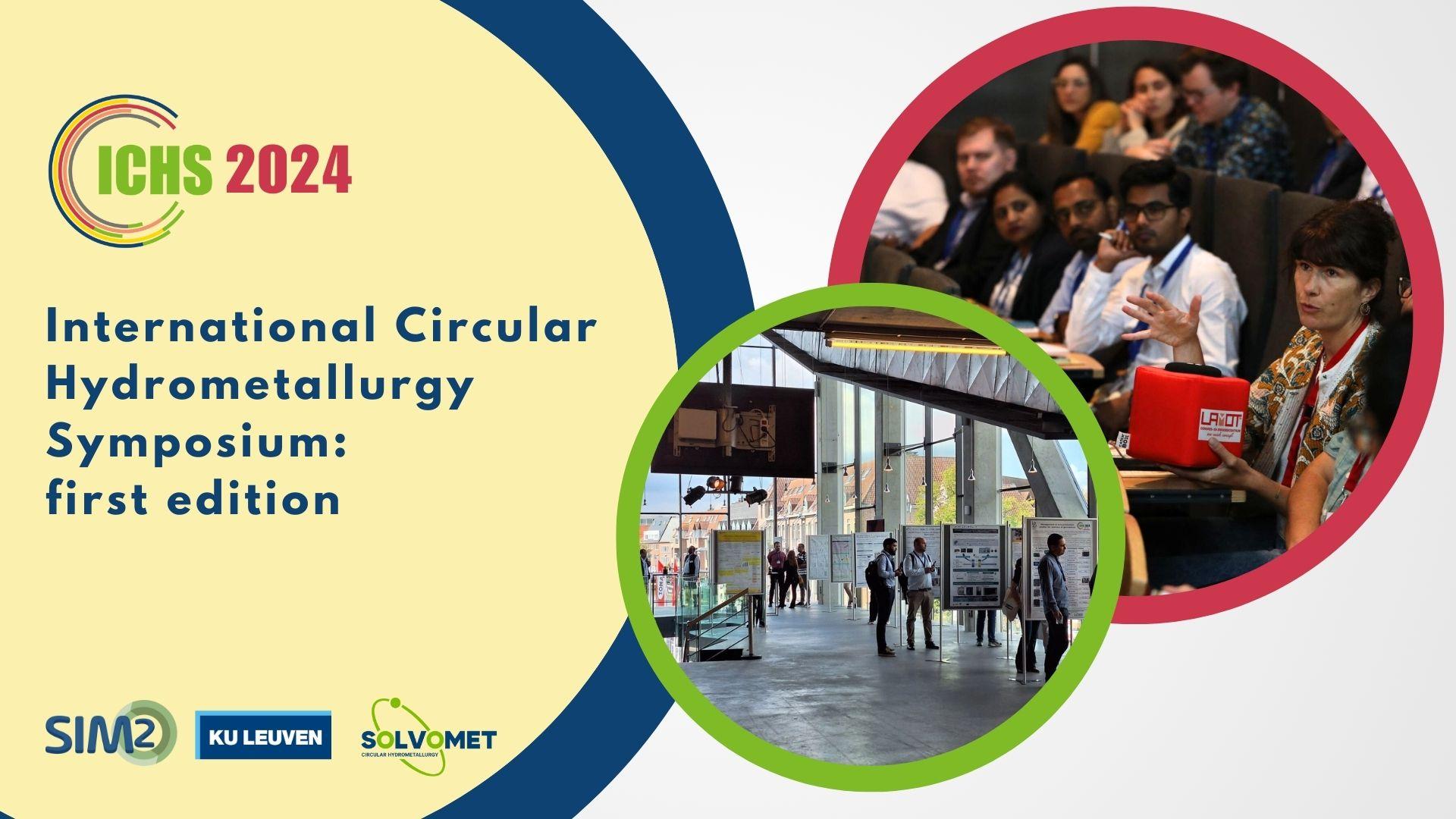Zhu Yang and colleagues from the Departments of Mechanical Engineering and Microbial and Molecular Systems at KU Leuven have publised an article in the journal Chemical Engineering Research and Design on a draft tube to improve mixing in swirling flow-based solid–liquid mixing reactors
The swirl flow reactor (SFR) is a new type of reactor for solid–liquid mixing in high-temperature, high-pressure processes. Previous research has shown that the mixing homogeneity of the SFR is not yet optimal. To enhance the homogeneity of the SFR and to optimize the utilization of the previously identified precessing vortex core at the nozzle, an improvement is proposed by the inclusion of a draft tube in the reactor center. Computational fluid dynamics is used to study the flow structure, particle distribution, and large-scale coherent structures in the SFR. The improved SFR was validated for its more homogenous mixing, where the homogeneity is improved from 0.945 for the original reactor to 0.991 in the new proposed design. Also, the influence of the draft tube on the fluctuating velocities and turbulence within the improved SFR has been indicated. In addition, Spectral Proper Orthogonal Decomposition (SPOD) is used to identify and reconstruct the coherent structures in the reactor. A flattened double-layer helical precessing vortex core (PVC) and its second-order harmonic at frequencies of 35.8 Hz and 71 Hz have been identified, which introduce extra large scale mixing near the nozzle of the reactor.
Reference
Zhu Yang, Thomas Holemans, Bert Lagrain, Bert Sels, Maarten Vanierschot, A draft tube to improve mixing in swirling flow-based solid–liquid mixing reactors, Chemical Engineering Research and Design, 2024, ISSN 0263-8762, https://doi.org/10.1016/j.cherd.2024.05.005.
Acknowledgements
The funding of this research by the ‘Dienst onderzoekscoördinatie (DOC) KU Leuven’ through grant number C3/19/015 is gratefully acknowledged. The computational resources and services used in this work were provided by the VSC (Flemish Supercomputer Center), funded by the Research Foundation – Flanders (FWO) and the Flemish Government





